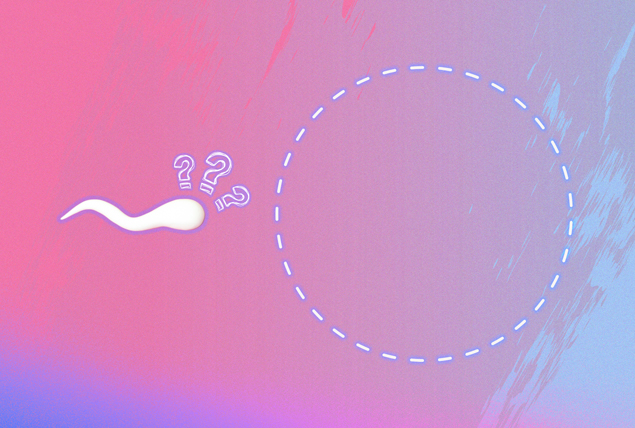Ovulation Complications Have Many Causes

Ovulation is a biological process that occurs on a monthly basis in a woman's reproductive system during her reproductive years. It refers to the time when the ovary releases a single mature egg with the goal of fertilization and conception.
When a woman enters puberty, she begins ovulating every month, explained Laura Purdy, M.D., an OB-GYN based in Nashville, Tennessee, and the chief medical officer of OpenLoop Health, a telehealth services delivery company based in Des Moines, Iowa.
This means that each month, between the sixth and 14th day of their cycle, a surge in follicle-stimulating hormone (FSH) from the brain signals for an egg to develop and mature inside the ovary. Then, around the 14th day, a surge in luteinizing hormone (LH), also from the brain, causes the ovary to release the egg, thus, completing the process of ovulation.
From there, the egg travels down the fallopian tube, where it stays for roughly 12 to 14 days, awaiting fertilization, Purdy explained. Whether or not the egg is fertilized during this period determines if the person becomes pregnant or their uterine lining sheds in the process known as menstruation.
While ovulation is meant to take place once per month, a number of factors can impact this process and hinder it from taking place.
"Anything that alters that communication between the brain and the ovaries and the amount of circulating hormones in the bloodstream has the potential to impact ovulation," Purdy said. "It's a very delicate dance."
Many factors can prevent ovulation from occurring—known as anovulation, when the ovary fails to release an egg during the menstrual cycle—but be aware of a few major contributors.
Pregnancy, breastfeeding and birth control
One of the more obvious reasons someone might stop ovulating is pregnancy. The intent of ovulation is to move toward conception, and the body has a way of knowing when it has fulfilled its goal.
"You don't ovulate when you're pregnant because that impacts the fluctuations of the hormones," Purdy said. "The body says, 'I don't need to ovulate right now.'"
In other words, when someone is pregnant, the hormones they produce communicate to the ovaries that ovulation is not necessary. Similarly, when someone is breastfeeding—at least for the first several months—they produce high quantities of the hormone prolactin, which in turn suppresses ovulation hormones.
This shouldn't be considered a foolproof form of birth control, however, as ovulation is still possible while someone is breastfeeding.
Taking hormonal birth control also has a similar impact, as it elevates the body's levels of progesterone in order to mimic pregnancy and suppress ovulation.
The impacts of stress
The brain and the ovaries are closely connected, so higher-than-normal amounts of psychological stress can impede the body's ability to ovulate, according to Purdy.
Stress can impact the hypothalamic-pituitary-ovarian (HPO) axis. It's a system that tightly controls and regulates female reproduction by connecting the hypothalamus in the brain to the pituitary gland right below it and the ovaries. Too much stress can cause dysfunction of the HPO axis.
"It has been reported that prolonged or chronic stress in rats and human females can block, inhibit or delay the preovulatory LH surge and, thus, disrupt the estrous or menstrual cycle," stated a recent study on chronic stress and ovulatory dysfunction.
HPO axis dysfunction constitutes 85 percent of ovulation disorders caused by PCOS, abnormal body mass index and endocrinopathies, according to another study from 2019.
The hypothalamic-pituitary-adrenal (HPA) axis, meanwhile, controls the body's response to stress. When activated, it can inhibit LH production and suppress estrogen and progesterone secretion from the ovaries.
When someone is under an increased amount of stress, it causes a spike in the production of adrenaline and cortisol, Purdy explained. Too much adrenaline can signal to the body that an environment is not safe for conception, and it can also prevent the utilization of progesterone.
Too much cortisol can also impact the secretion of estrogen and progesterone. Together, these hormonal imbalances can lead to suppressed ovulation.
Demonstrating the connection between stress and fertility, one study found it took women with high levels of alpha-amylase in their saliva—an enzyme that increases as a result of stress—29 percent longer to get pregnant than those who had smaller amounts.
"The hypothalamic-pituitary-adrenal axis, when activated by stress, exerts an inhibitory effect on the female reproductive system," wrote researchers in a study in the Journal of Reproductive Immunology on the connection between stress and the female reproductive system.
The effects of stress are considered responsible for functional hypothalamic amenorrhea (FHA), an ovarian disorder in which the hypothalamus causes your period and/or ovulation to stop.
FHA can be triggered by stress, anxiety, depression, malnutrition, eating disorders and chronic excessive exercise, according to Purdy. Other major physiological stressors, such as brain injuries, surgeries and extended hospitalizations, can also lead to ovulation and menstrual irregularities.
PCOS, hypothyroidism, endometriosis and more
People who have polycystic ovary syndrome (PCOS) often experience complications with ovulation due to hormone imbalances. They typically produce too many androgens, or male hormones, and not enough female hormones, causing tiny cysts to form on the surface of the ovaries.
"Those will be the people who maybe only ovulate just a handful of times a year or not at all," Purdy said.
Both hypothyroidism and hyperthyroidism can impact someone's ability to ovulate due to abnormal thyroid-stimulating hormone (TSH) levels. Other endocrine disorders, including Turner syndrome and premature ovarian failure, can have a similar effect.
Endometriosis, a condition in which tissue similar to the endometrium—the lining of the uterus—grows on other organs such as the ovaries, can also impact ovulation. It can damage the egg supply within the ovary, causing inflammation and a diminished ovarian reserve.
Primary ovarian insufficiency, also known as premature menopause, is a condition in which the ovaries stop functioning as they should before the age of 40. People who suffer from this condition don't produce normal amounts of estrogen or release eggs regularly, and it often leads to infertility. It also causes other health problems and needs to be treated with hormone replacement.
If you're concerned you may not be ovulating regularly, you're having difficulty getting pregnant, or you're experiencing irregular or skipped periods, talk to your healthcare provider about the many possible causes of ovulation complications.
Are you looking for a new doctor because you've moved, your longtime physician retired or you just need a change? Giddy Telehealth takes the difficulty out of the search. The easy-to-use online service provides access to hundreds of healthcare professionals who have expertise across the full scope of medical care. Many of them specialize in women's health and offer same-day video visits.


















